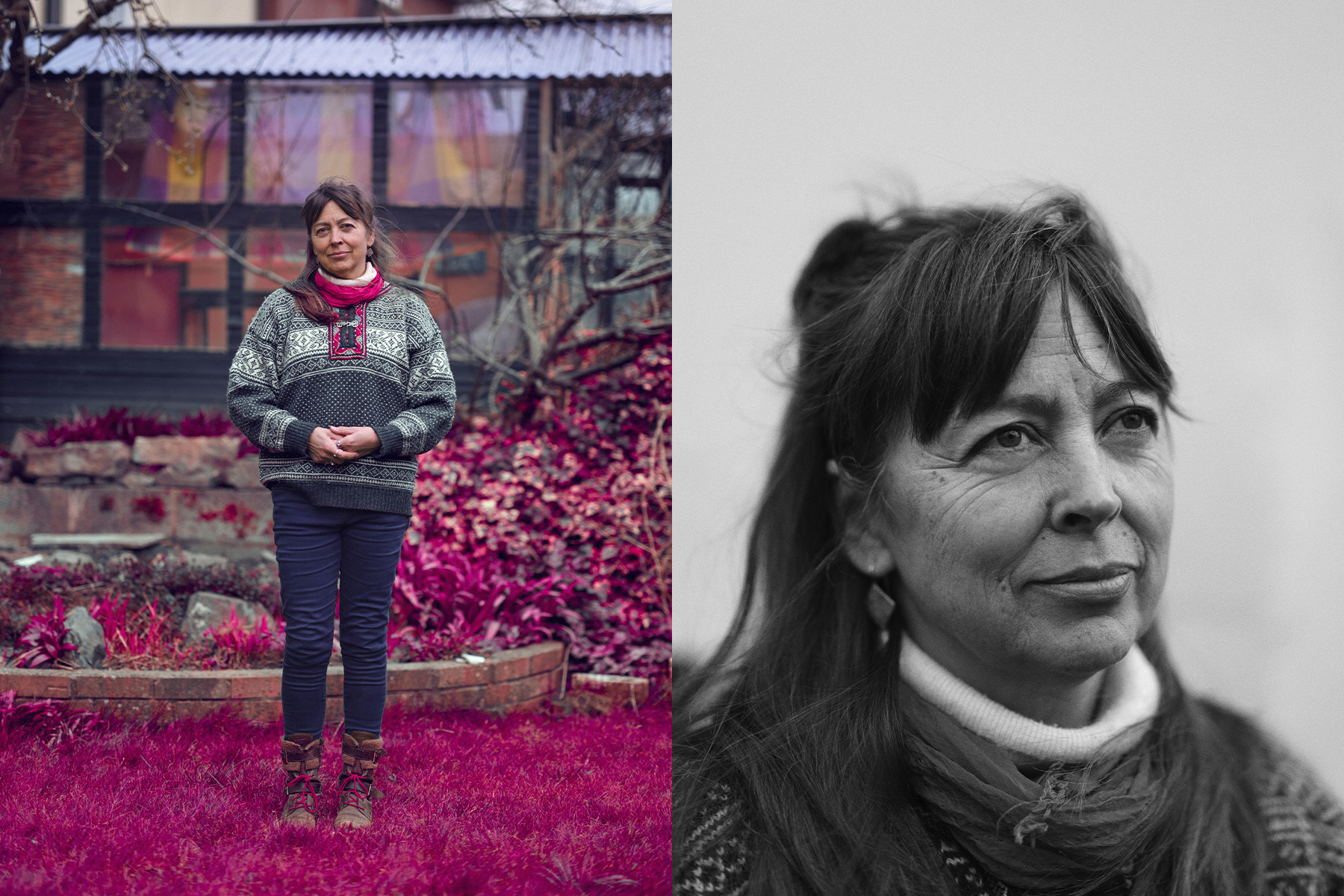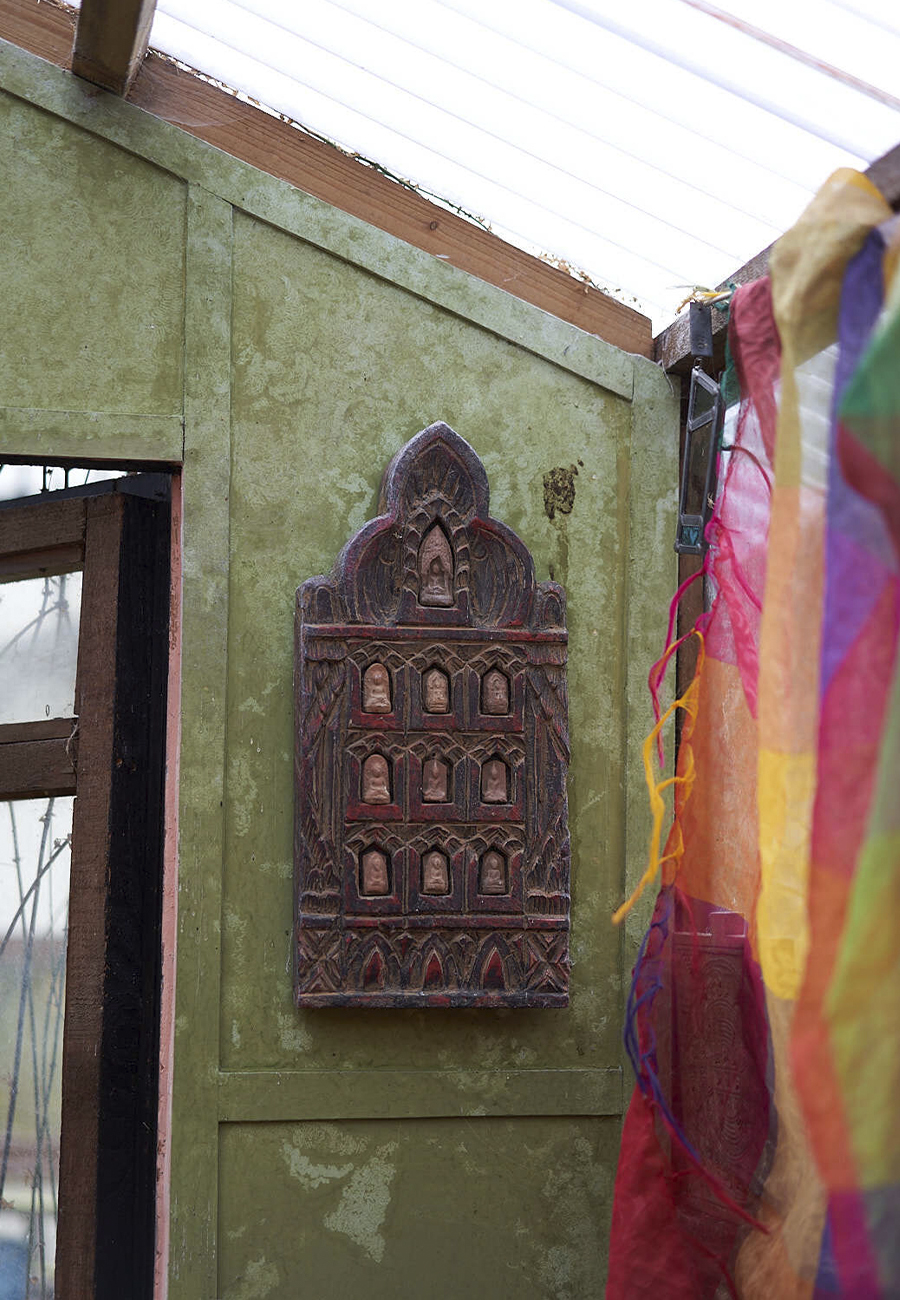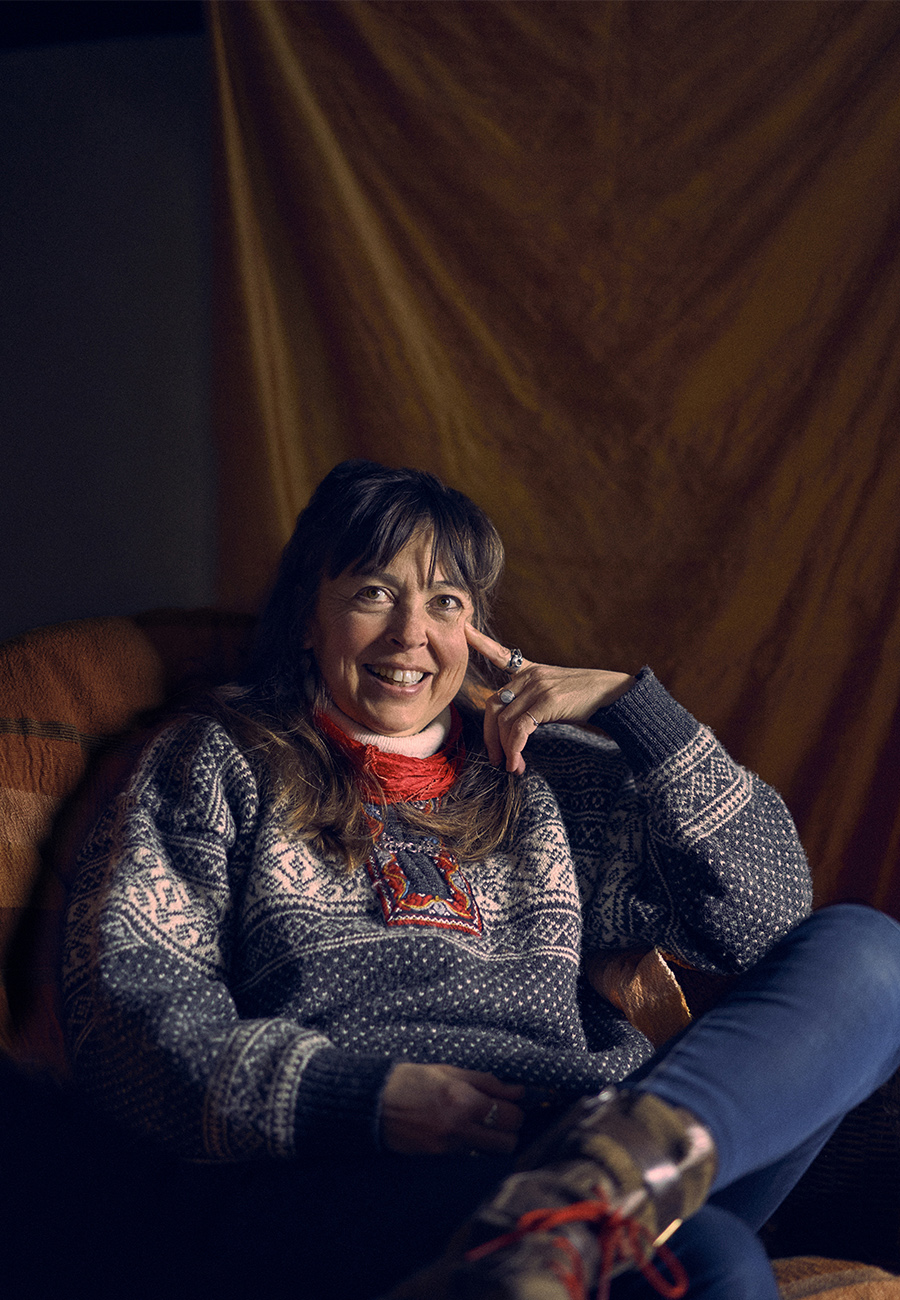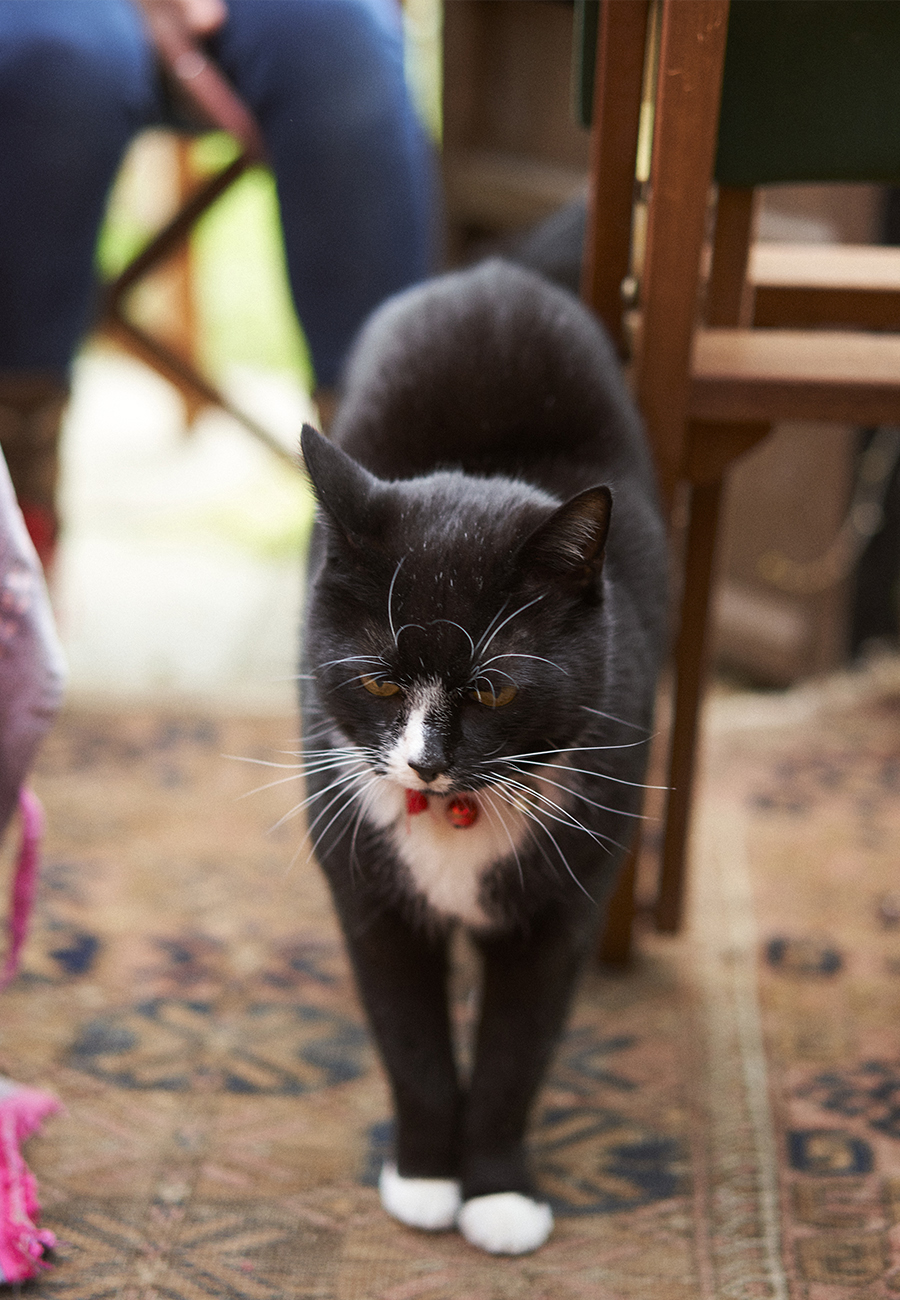
- Home |
- Search Results |
- The prescience of Jay Griffiths
The prescience of Jay Griffiths
Before making headlines with her Extinction Rebellion court case speech in 2020, Jay Griffiths spent decades trying to change the narrative around climate change. It is just one aspect of a visionary writing career, which continues this month with essay collection Why Rebel.
On 9 February 2020, in a grey and cold pre-pandemic London, a moment of history was taking place at the City of London Magistrates Court.
"It is with a really heavy heart that I have to convict you," District Judge David Noble told the defendant, adding: "This is going to be my last Extinction Rebellion trial for a little while. I think they only allow us to do so many of these before our sympathies start to overwhelm us." The judge had been, he said, overwhelmed by the defendant's courtesy, integrity and honesty. Before the court rose, Noble’s closing remarks were as much an order as a plea: "You have to succeed."
The author and lifelong activist Jay Griffiths walked away with a conditional discharge, but she changed Noble’s career in the process with her words. The judge – whom she described as “old-school and no-nonsense” – gained a new understanding of the vitality of protest after hearing her testimony. Nearly a year after the hysterical coverage of people camping out in Oxford Circus and walking along Waterloo Bridge, the papers covered another story: one in which a judge didn’t condemn protestors but wished them well, convinced that their actions were essential in the fight against climate crisis. It was a moment, Griffiths writes in her new book, Why Rebel, that left those in court "standing in a place of grace. Because that is where – and why – the real truths are told."
Griffiths and I are talking about Why Rebel in her shed, in her garden, in a small town in Powys, mid-Wales. It’s a good shed: roofed with clear plastic instead of felt. Its corners are softened with cushions and chairs and chimes. In the background sits her house – a 400-year-old cottage which is beamy and filled with irresistible curios. The front door opens to walls washed with sunshine-coloured paint.
'Griffiths’ books change the way the world looks'
Nestled in the shed is a tea-towel. In bright capital letters, it reads: 'Be kind, be honest and do everything with love'. These, Griffiths says are the rules of the shed. "In fact," she adds, "I think in the end they are the rules of life."
Now in her mid-fifties, Griffiths’ arrest and subsequent trial are only the more recent extraordinary events in an extraordinary life, which has always entwined with her writing.
After graduating from the same university as Boris Johnson, she worked on – and then abandoned – her debut novel (“the thing was, it was crap”), before her journalism career took off in her twenties when reporting on the Newbury Protests – the 1996 occupation of ancient woodland that controversially became the Newbury Bypass – for the Guardian and London Review of Books. After that came her 1999 debut Pip Pip, which reconfigured our concept of time and featured in multiple newspaper Book of the Year lists (two decades later, the book regained relevance after student protestors held up giant models of it against police batons).
Griffiths then spent seven years with the world’s most remote indigenous tribes, travelling from the Arctic to the Amazon to the hardly known West Papua to witness the impact of colonialism on climate crisis. Those experiences became Wild, a 2007 book that won the inaugural Orion Book Award and was shortlisted for the Orwell Prize. Philip Pullman said it was “like nothing else I’ve ever read”. Kith followed in 2014 with its persuasive, playful plea for a reimagined childhood and, in 2016’s Tristimania, Griffiths turned her year-long experience of manic depression into an intellectual and lyrical apprasial of the condition. With each book, she has taken something fundamental to the everyday, then questioned it and presented it anew: Griffiths’ books change the way the world looks.

In 2021, especially after the Covid year, “kindness” is something of a buzzword. It adorns murals and social media memes, it winnows into ad campaigns. But Griffiths identified its power years ago; she writes of the ambition to “follow a wild and radical kindness” in Wild. Why Rebel explores the power and increased necessity of that kindness. A precise collection of essays, it trips through the various devastations of our time – among them the resurgence of fascism, the mass loss of insect species and the impact of Covid-19 on our sense of, and rights to, freedom – before culminating in the story of Griffiths’ arrest.
They act as a good Jay Griffiths primer, nodding to the subjects of her other books. But beyond that, Why Rebel embodies the strength that all of them share: Griffiths’ ability to blend the personal with the political, to make the reader care as much about climate crisis, about inequality, about genocide, as she does – through the power of story alone.
She has been writing about these things for far longer than most of the Western world cared about them. I ask Griffiths if it has, at times, felt like shouting into a void. At first she laughs – a big, loud, hoot – but then falls quiet. “A little bit?” A pause. “A little bit. I think that’s true. The appetite for the discussion [of climate crisis] before Extinction Rebellion was very, very low. There were several times when I would bring it up in conversations and be cold-shouldered. People would literally just turn their backs on me.”
'I love what you can do with a string of words, but also what you can find within a word'
Griffiths understands why climate change was a difficult matter for the broader public to grasp. “It was this difficult, amorphous thing,” she tells me. “It was physics, it was politics, it was justice, it was business, and a lot of it was very boring, necessary things, like changing lightbulbs and recycling.” In Why Rebel she outlines how the silence emerged: scientists have been warning of climate catastrophe for decades, but have done so through “lifeless phrases” such as “’extinction event’ or ‘species decline’ because of ‘intensive agriculture’… they are words of tarmac and traffic, not the lovely writhy ivy words of the woods,” she writes. “I cannot touch or taste terms like ‘habitat loss’ or ‘pollution’ because they are unbeloved words.”
It was, she says, “absolutely right” of the scientists to speak in this “chilly and cold and analytical language”, as her cat, Otter, wends his way through her legs. The problem came later, “when the messengers repeated that register, when actually what you needed was people to say ‘fuck’, and to cry in front of the cameras, and to respond accurately emotionally.”
Why Rebel offers that: an accurately emotional response. Griffiths’ writing is the kind admired by other writers (Richard Mabey and John Berger adore her work). One of the reasons, says her editor Simon Prosser, is “her relish for language” and a “commitment to words as a vehicle for politics – for activism, struggle, resistance and hope”.

Griffiths’ books play with words: they are love letters to language in themselves. Etymological facts are smuggled in between ones about ocean depths or Ovid; her arguments, already persuasive, are further strengthened by unpicking language to reveal its origin and intent. “The saddest word I know in any language is the word endling,” she writes in Why Rebel. “It refers to the last individual of a species, final and forlorn, at whose death the species is extinct. And endling is the very epitome of tragedy, and the word was coined, appropriately, in this age of extinction, this strange age of our dawning knowing, seeing the unhallowed horror that is approaching.”
I say I want to talk about language, and Griffiths smiles. “That is part of writing which gives me total and infinite pleasure,” she says. To her, a sentence doesn’t just run along a page but can offer canyon-like depths. “I love what you can do with a string of words, but also what you can find within a word. Within a sentence there will be some words there I just want to drop straight down into, and you can go back thousands of years and find its kinships with other words, and how the meanings have changed. It’s like a huge landscape.”
One of the greatest strengths, she says, of Extinction Rebellion was how it turned “silence into speech” – after decades of people dismissing climate change as a niche interest, the protests placed it at the centre of conversation. Ecological crisis became something people talked about over the dinner table, in the pub and in the boardroom.
'I just saw two words: 'extinction rebellion', and I went: got it in one'
Griffiths first heard about the movement in 2018, in a pleasingly analogue fashion: “A friend of mine was staying with me at the time had gone to a festival,” she says. “She came back and goes, ‘Oh, I met your mate Shane, and he said “Give this to Jay. She will love this.”’ And I took the leaflet, it was about A5; it was really muddy. I just saw two words: “extinction rebellion”, and I went: got it in one. It was the genius of that title. Because what it does is it says: that this cannot carry on.”
It took her back to her origins in the movement; the Our Land occupation in Surrey, in 1995, where she met environmentalist, author and broadcaster George Monbiot. “It turned out that we had very similar interests and similar concerns,” he says. “So we immediately hit it off”. They remain good friends now. We speak a little about Griffiths’ work. He sums up the heart of it: “Whatever happens, you just keep going back to the land,” Monbiot tells me. “That's apparent in Jay’s writing. She has her feet on the land and her eyes on the stars.”

The protests, and the people in them, allowed her to “see my politics and my religion”, she says. “I was very moved by how people were protesting, which was so imaginative and so funny. There was a kind of ancient sense of service, which is also something I find in Extinction Rebellion.” Extinction Rebellion’s first demand is to “tell the truth, and act as if the that truth is real” – like in the shed, honesty underlines everything.
Griffiths hadn’t wanted to get arrested at Newbury in the late Nineties. Three decades on, when a big pink boat pulled into Oxford Circus (something that still, on recollection, delights her with its fantastical, witty brilliance), it wasn’t an ideal choice either – instead it was what she saw as the only option. It took her five days to get handcuffed. “I didn’t want to be arrested,” she explains. “I didn’t want a criminal record. I still hate the idea of being in an enclosed space where I can’t get out. I didn’t want any of that. But I think it becomes worth something when you say, ‘Yeah, it was difficult’”.
In Why Rebel, Griffiths’ arrest is a positively genteel thing; the police, she tells me, were charming, inspired by the good behaviour of the protestors – as well as their near-magical abilities to get compost toilets set up from scratch in 20 minutes. What was harder was the court case, which followed nine months later.
'To actually put children in a situation where they’re the ones who are going to suffer the worst, is the most appalling wrong'
The concept for Griffiths’ testimony came to her in bed, in the midst of many months of tangled thinking. “It was a very simple thing, in the end. It just came to me,” she says. “I don’t want to talk about the law, I want to talk about justice. To actually put children, the very people who should be most protected, in a situation where they’re the ones who are going to suffer the worst, is the most appalling wrong.”
Reading Griffiths’ statement, which is printed at the end of Why Rebel, it is difficult not to imagine the emotion in the court; the quiet hum of a wild radical kindness. “In Oxford Circus, I was passed a little handwritten note. It said, ‘I can’t get arrested because I am only 10 but thank you for doing this for me.’ It is my vow to live guided by the justice for the world I love, a world where in the eyes of a child I am innocent.”
Its most poignant part – and, in turn, of the book – is when she speaks of the children she never had. “I love children and always wanted a child, but I am truly relieved now that I do not have one, because I would at some point plead with them not to have a child of their own,” it reads. “My own grandmother was a Pankhurst, and I am happy to follow in those footsteps, except for one thing: I would not want to be a grandmother myself.” In a world facing climate crisis, it is the children of today, and those of the future, who will witness the worst of its consequences. “We’ve all colluded, and I would include myself in that, in an enormous crime,” she says. “At the same time, the collective lack of imagination, that collective stifling of conversation has made it really difficult to speak, and act, for so many people.”
Finally, though, people are listening. Is she hopeful about the future? “I think the idea of making a necessity of hope is stupid, quite often,” she says gently. Fear, she suggests, is more galvanising. “I think people do things when they’re really scared. Appropriately scared.
“But what makes me optimistic is human nature, because actually, I believe in people’s fundamental goodness, in people’s fundamental kindness. And I do think that given good information, people generally make good decisions.” Griffiths, storyteller for so long, is turning into soothsayer. The wisdom she’s seen and learned from others, often living non-Western, non-colonial lives, is being offered up for us to change ours. The decision? Whether to act with kindness, honesty, and love – or not. It could be one to save the world.
What did you think of this article? Email editor@penguinrandomhouse.co.uk and let us know.
Image: Stuart Simpson / Alicia Fernandes / Penguin